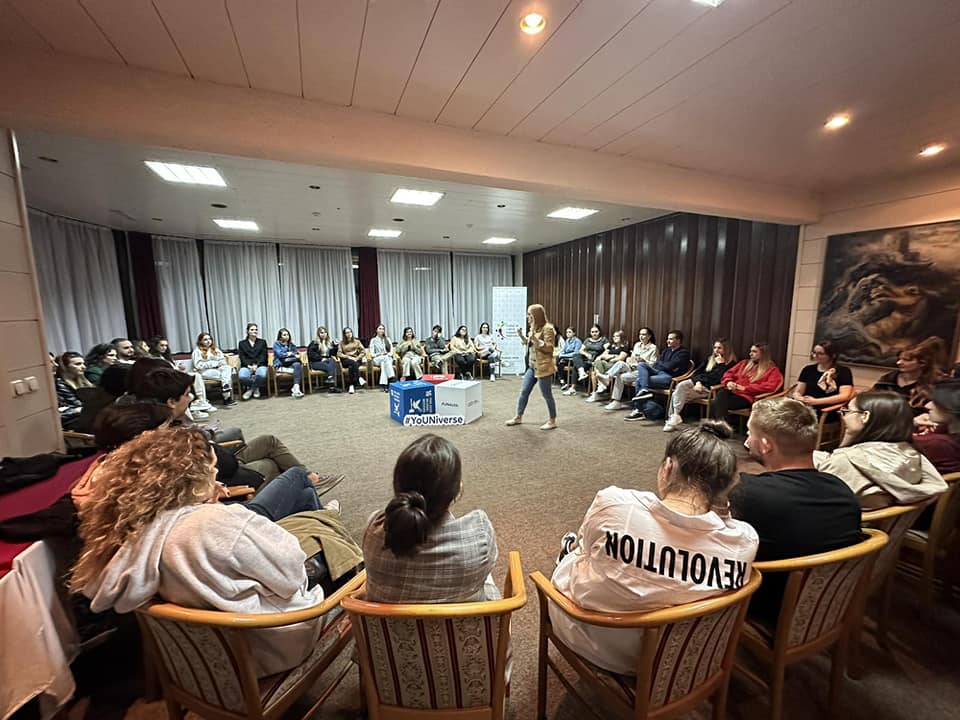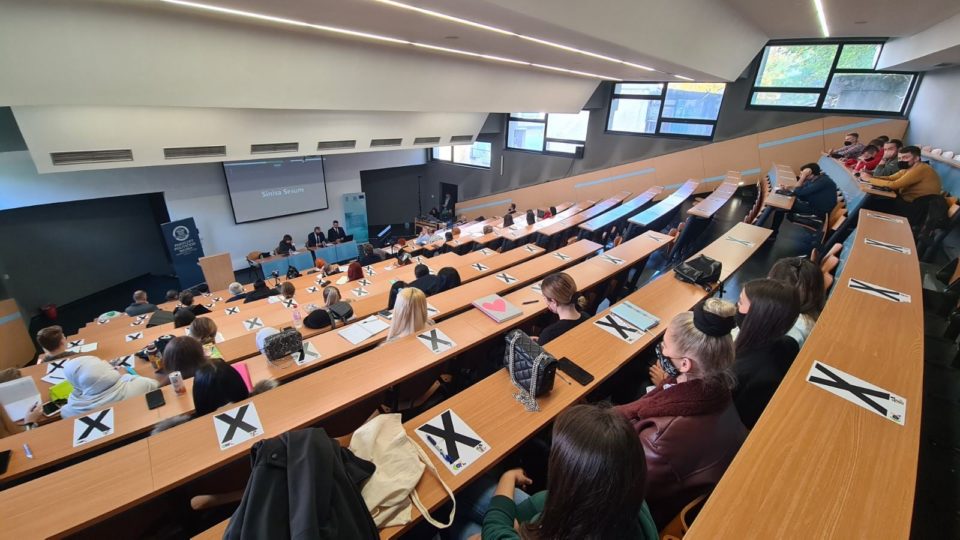
Media and information literacy (MIL) constitutes an important segment in the lives of young people. It is arguably one of the most crucial skills of the 21st century. Despite this, formal MIL education remains hard to access in Bosnia and Herzegovina.
Associate Professor Dr. Lamija Silajdžić from the Department of Communication at the Faculty of Political Sciences in Sarajevo considers MIL to be highly significant in the education of young people who are nowadays most exposed to the challenges of the digital environment.
“This topic is important in education to ensure young people enhance their cognitive, technical, and social skills, enabling them to effectively utilize the information they are exposed to today,” Silajdžić stated.
According to Silajdžić, the concept of improving one’s MIL in our country’s educational system is supported by enthusiastic individuals and (non-)teaching staff.
However, it is still not a strategic policy. So far, only the Sarajevo Canton has stated its commitment to MIL, with the adoption of the Strategy and Action Plan (2022) for the integration of media and information literacy into educational systems, though implementation has not yet begun.
In higher education, as explained by Silajdžić, the subject of MIL is studied at the Faculty of Political Sciences and the Faculty of Philosophy at the University of Sarajevo.
Integrating MIL Into Education
Emina Adilović, Senior Research Associate at the Institute for Social Research at the University of Sarajevo, believes that it is necessary to discuss MIL from the earliest age.

“We should not fall into the trap of so-called technological determinism, which advocates a technocratic approach and the belief that it is possible to find solutions to all social problems today through specific tools and software. Instead, it is much more useful to adopt an approach that will not only involve finding useful digital tools but also include critical thinking about all aspects of digital, media, information, and algorithmic weaponry, which, again, can be achieved through the integration of MIL into the educational system,”Adilović believes.
As leading member of the Intercultural Perspectives on Information Literacy and Metacognition (IPILM) course, which the University of Sarajevo has been organizing for years in collaboration with colleagues from several universities worldwide, Adilović explained that this is a unique example of promoting education aimed at developing critical citizens. It is not project-oriented but driven by the enthusiasm of students.
“So far, this course has involved several hundred students from around the world who, in an intercultural environment, have the opportunity to learn from each other about a topic that is common to all of us,” Adilović concluded.
Innovative and Intercultural Approaches to MIL
Adilović insists that all students, regardless of their choice of study, can find themselves studying topics that require MIL.
“My previous experience has shown that it is always possible to find an innovative approach to these topics, using contemporary issues and examples that students can use to better connect this concept with everyday phenomena and challenges. However, it is important to consider that adopting MIL competencies is a long-term and lifelong process,” Adilović believes.
Adilović stresses the importance of the mentoring process during the IPILM course, particularly given the diverse group of information professionals who often make up the class. With this in mind, she notes the possibility of an intercultural approach to the module.
“In this way, students and course participants can gain insights and compare different examples and cases from environments they otherwise would not have access to. They can also get to know colleagues from other backgrounds, with whom they often stay in touch even after completing the international course,” Adilović stated.
Reflecting on the relationship between artificial intelligence (AI) and MIL, Associate Professor Silajdžić stated that AI is another digital challenge that can be overcome through good MIL.
“Artificial intelligence can be used for both good and bad purposes; the responsibility lies with the individual,” Silajdžić added.
Silajdžić and Adilović urge young people to take time for critical reflection on the information they read and consume, while encouraging them to use all kinds of media and information to learn and grow.






